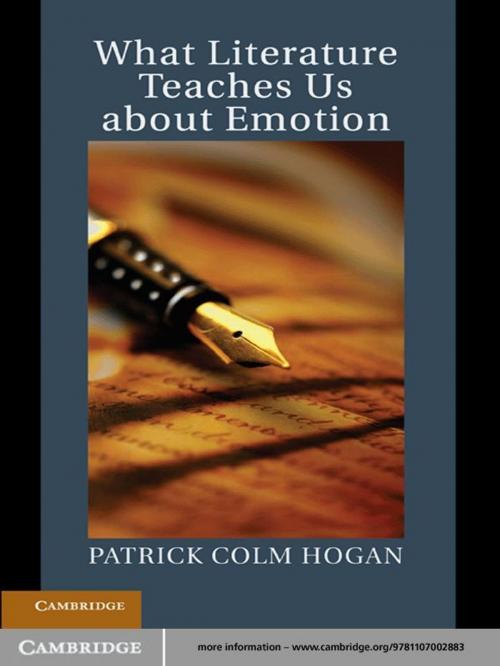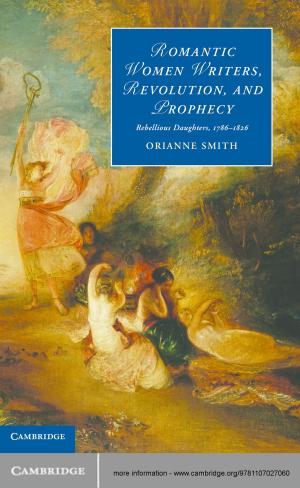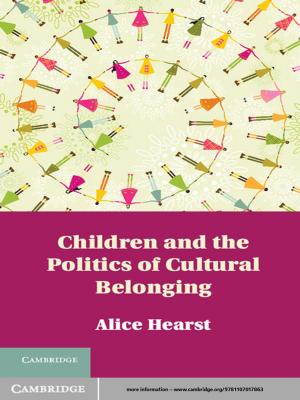What Literature Teaches Us about Emotion
Nonfiction, Health & Well Being, Psychology, Cognitive Psychology, Fiction & Literature, Literary Theory & Criticism| Author: | Patrick Colm Hogan | ISBN: | 9780511994555 |
| Publisher: | Cambridge University Press | Publication: | March 21, 2011 |
| Imprint: | Cambridge University Press | Language: | English |
| Author: | Patrick Colm Hogan |
| ISBN: | 9780511994555 |
| Publisher: | Cambridge University Press |
| Publication: | March 21, 2011 |
| Imprint: | Cambridge University Press |
| Language: | English |
Literature provides us with otherwise unavailable insights into the ways emotions are produced, experienced and enacted in human social life. It is particularly valuable because it deepens our comprehension of the mutual relations between emotional response and ethical judgment. These are the central claims of Hogan's study, which carefully examines a range of highly esteemed literary works in the context of current neurobiological, psychological, sociological and other empirical research. In this work, he explains the value of literary study for a cognitive science of emotion and outlines the emotional organization of the human mind. He explores the emotions of romantic love, grief, mirth, guilt, shame, jealousy, attachment, compassion and pity - in each case drawing on one work by Shakespeare and one or more works by writers from different historical periods or different cultural backgrounds, such as the eleventh-century Chinese poet Li Ch'ing-Chao and the contemporary Nigerian playwright Wole Soyinka.
Literature provides us with otherwise unavailable insights into the ways emotions are produced, experienced and enacted in human social life. It is particularly valuable because it deepens our comprehension of the mutual relations between emotional response and ethical judgment. These are the central claims of Hogan's study, which carefully examines a range of highly esteemed literary works in the context of current neurobiological, psychological, sociological and other empirical research. In this work, he explains the value of literary study for a cognitive science of emotion and outlines the emotional organization of the human mind. He explores the emotions of romantic love, grief, mirth, guilt, shame, jealousy, attachment, compassion and pity - in each case drawing on one work by Shakespeare and one or more works by writers from different historical periods or different cultural backgrounds, such as the eleventh-century Chinese poet Li Ch'ing-Chao and the contemporary Nigerian playwright Wole Soyinka.















